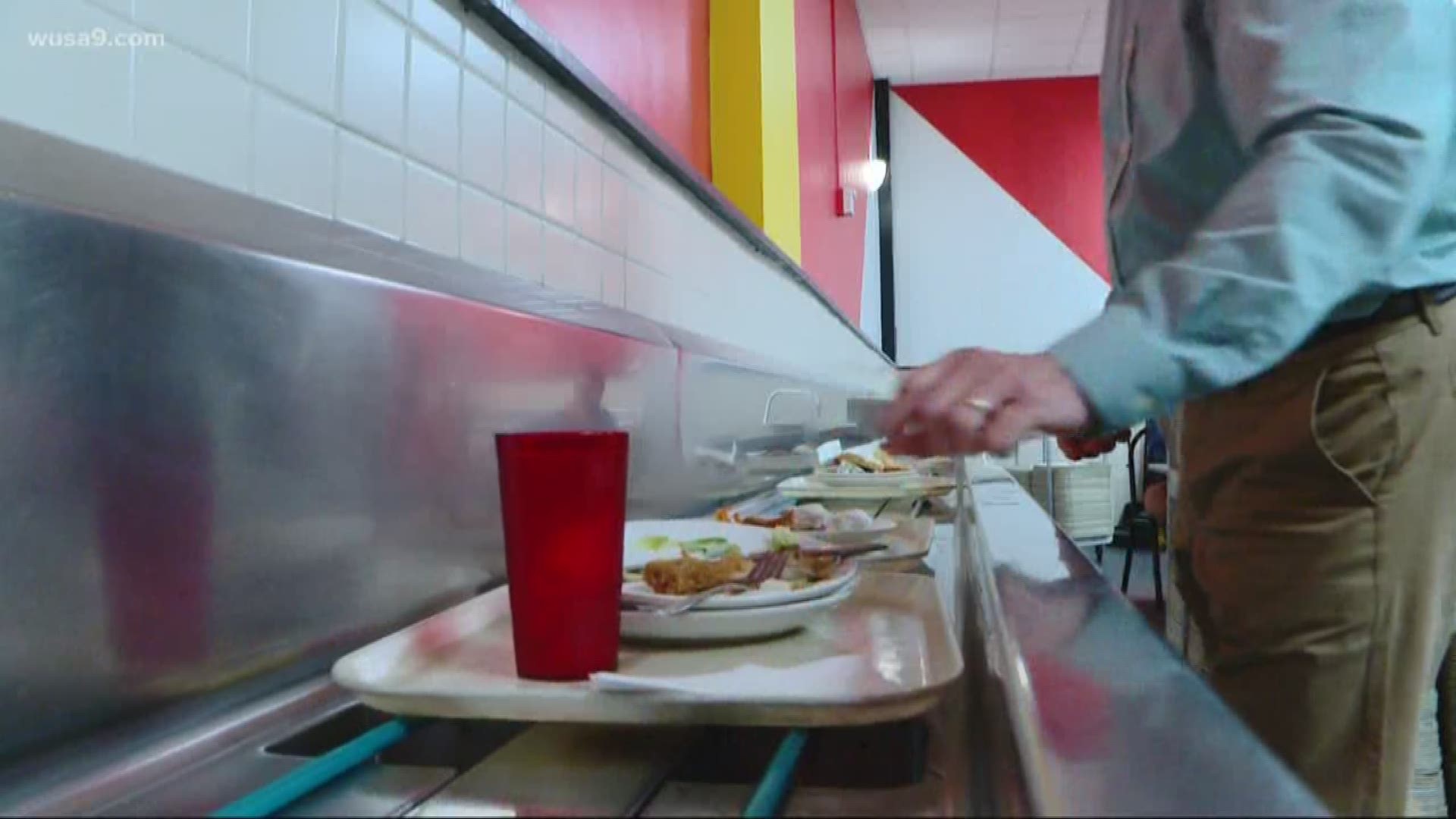COLLEGE PARK, Md. — Students at the University of Maryland are literally eating the byproducts of their own garbage.
It's good for them -- and for our environment.
On a steamy spring day at the Terp Farm in Upper Marlboro, Guy Kilpatrick spreads the first of about six tons of compost on the fields in preparation for planting.
"We grow tomatoes, we grow hot peppers. We grow Asian greens," Kilpatrick said with pride.

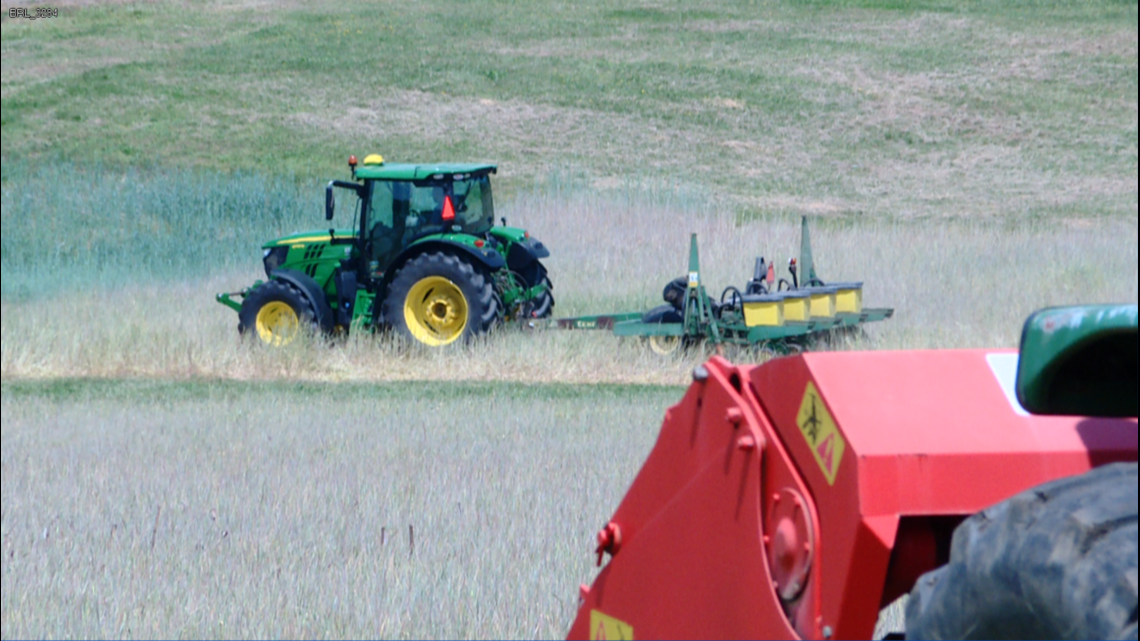
Growing the vegetables just one step in a big circle.
Students in the dining halls at the University of Maryland eat the fresh produce grown at the Terp Farm. The scraps the students don't eat go on a conveyor belt back to a dish room, where workers sort the food waste is into containers for composting.
"It sounds really good," said student Jacquelin Kerlin, who had a bunch of leftovers on her tray. "I know they have a lot of food waste. So that's definitely a lot of food they can compost."
"We would like to minimize what goes into the landfill and maximize what gets recycled and composted," said Bart Hipple, who helps run the University of Maryland dining halls.

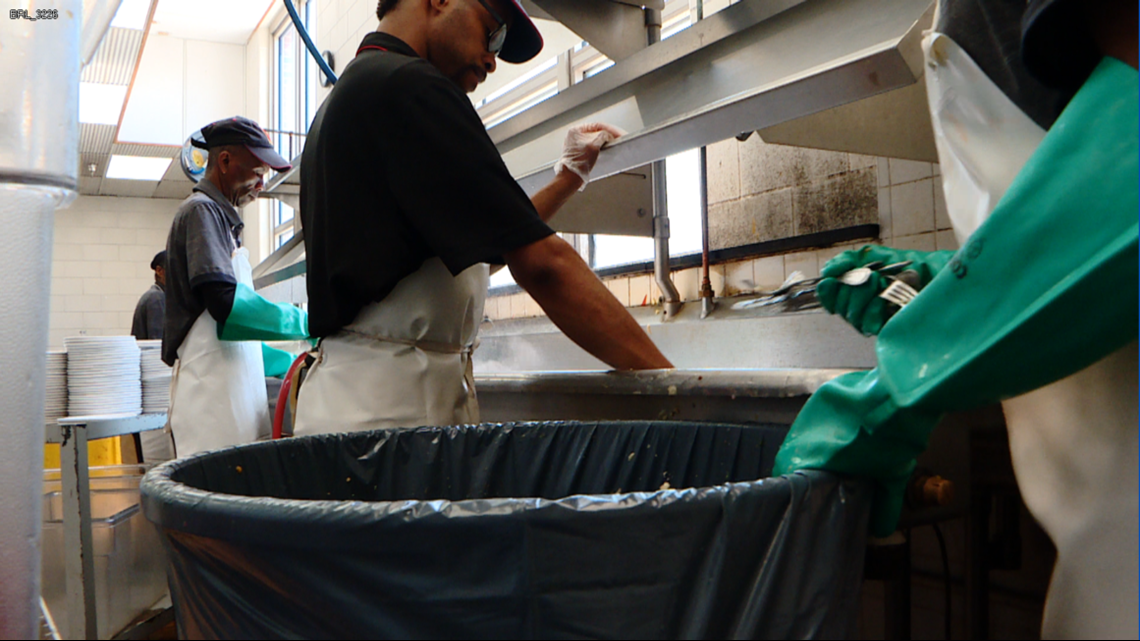
Crews truck the garbage to the Prince George's County Organics Compost Facility -- the largest on the East Coast -- where it's pushed into piles and in less than eight weeks turned into a rich soil amendment that's great for growing vegetables.
"They're eating the fresh fruit and vegetables and all the other great things that are grown with the nutrients that came out of that organic food waste," said Roy McGrath, CEO of the Maryland Environmental Service, the not-profit, state-owned agency that runs the compost facility.

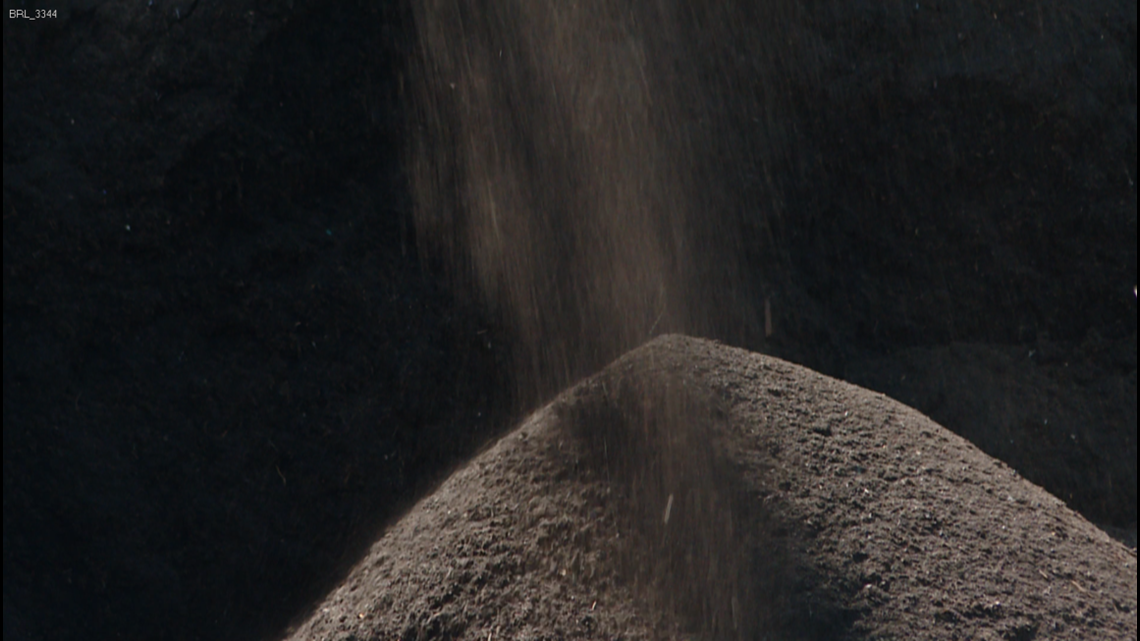
The EPA estimates Americans produce about 40-million tons of food waste a year. Almost all of it gets incinerated or dumped in a landfill.
This big circle is one way to turn that around.
The Maryland Environmental Service is right now producing about 32,000 tons of food waste compost in Prince George's -- and selling most of it as LeafGro gold.
But the agency has all kinds of expansion plans.

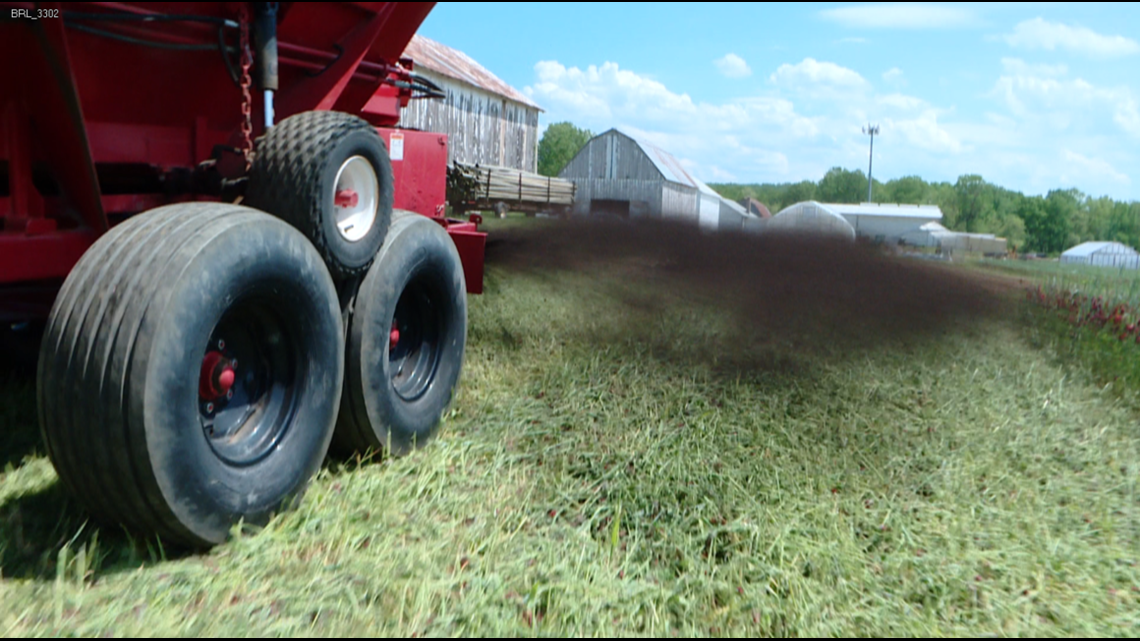
In Washington D.C., the plans are for curbside food waste pickup for every resident in the next five years. Just imagine how much compost that would create.

